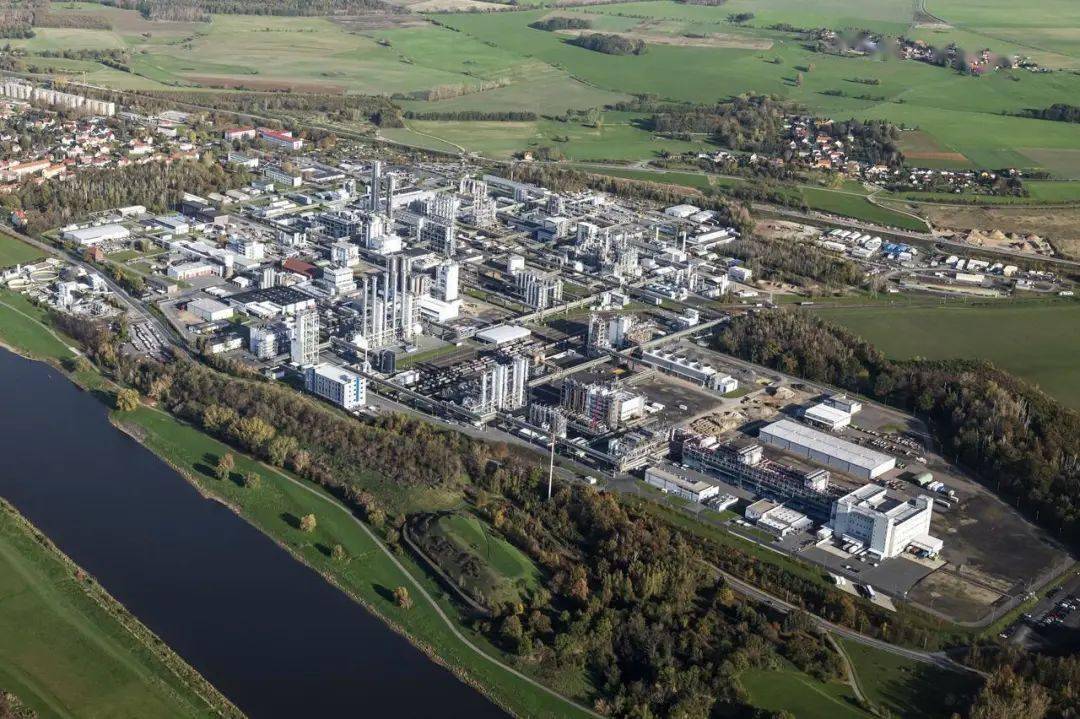On August 24, 2023, Wacker Chemical Co., Ltd., together with the Governor of Saxony, Mr. Michael Kretschmer, joyfully celebrated the 25th anniversary of Wacker's acquisition of Nünchritz Chemical Plant. In October 1998, as a globally renowned chemical group, Wacker acquired the Nünchritz Chemical Plant and has since invested approximately €1.7 billion to transform it into one of the world's largest and the most advanced production bases for silicone and polysilicon.

A brief introduction to the chemical base - Nünchritz
The chemical plant, situated on the banks of the Elbe River in Germany, boasts a rich history spanning over 100 years. Founded by Friedrich von Heyden in 1900, it initially focused on producing inorganic products such as sulfuric acid, sodium hydroxide, chlorine, and hydrochloric acid. In the early 1940s, chemist Richard Müller invented the Müller Rochew synthesis process, which paved the way for industrial production of organic silicon. Consequently, in 1954, Nünchritz factory commenced this production. Following German reunification, VEB Chemiewerk Nünchritz state-owned chemical plant was renamed Nünchritz Chemie GmbH. Finally, Wacker took over ownership of this chemical plant in October 1998.
Wacker Chemical Co., Ltd. manufactures a wide range of chemical products based on silicon at their Nünchritz production base, offering approximately 200 varieties of organic silicon products, fumed silica, and ultra-pure polysilicon specifically designed for the solar energy industry.
Additionally, Wacker also possesses in there a range of equipment for silicone adhesives and sealant filling equipment. This comprehensive production base is characterized by minimal waste, high energy efficiency, sustainable reduction in raw material and energy consumption, as well as mitigating the impact of wastewater and exhaust gas on the environment. Wacker's organosilicon and polysilicon products, manufactured in State Saxony, Germany, are exported worldwide.
In his speech, Dr. Hartel, the Group President and CEO, expressed his gratitude to the Saxony government, the partner companies as well as employees at the Nünchritz production base involved in the expansion project. He highlighted that transforming the Nünchritz factory into one of the largest and the most advanced silicon chemical bases in the world is an immense and intricate project that necessitates teamwork. The success of this endeavor relies entirely on the dedication and spirit of cooperation from all parties involved. Additionally, he mentioned the exceptional work efficiency exhibited by the Nünchritz production base, stating that, since 2001, numerous state-of-the-art production units for organic silicon and upstream products have been constructed at this location, with the existing facilities significantly expanded. Additionally, in 2010, the production of polysilicon in Nünchritz, as a vital foundational material for semiconductors and solar cells, was commenced. It is worth noting that the Nünchritz production base has now emerged as a "champion" in terms of production technology, rivaling other similar bases.
Looking ahead, Dr. Hartel expressed his confidence that Wacker would continue to make the success of Nünchritz. However, he also highlighted the challenging external economic environment in Germany in recent years, particularly due to comparatively high electricity prices on a global scale, emphasizing: "Energy is vital for the chemical industry's sustenance. Insufficient and uncompetitive energy prices pose a threat to the entire chemical industry and its value chain." Dr. Hartel once again reiterated his plea for reducing industrial electricity prices in Germany to 4 cents per kilowatt hour as an interim measure until affordable green energy can be adequately obtained.



